|
I guess the warning signs were present from the beginning.
After all, the first album I ever owned was by Culture Club. Cyndi Lauper was my first love and Madonna my first obsession. The first poster that I ever tacked up on my wall was of Wham! Just a year or two later, my young distrust of David Bowie and Prince turned to undisputed love. My idols weren't just pop stars to me. They were more than their hits. They were touch stones. It can't be a coincidence that they were also among the world's first mainstream LGBT artists and allies. The gender benders and the rule breakers of the music video age. These were artists who were prepared to consciously take on sexual politics on a scale people never had before thanks to the music video medium. Acts who could've taken the easy road rather than attract criticism through their opposition to the status quo. Artists who felt and moved at a time when we valued trickery and cultural violence over anything else. The acts who gave people like me a solid footing and foundation to explore music more dangerously and widely because their music was already something more than just pop. George's talent? It was there from the beginning. We might've been distracted by the fluro, by the white speedos and the Choose Life t-shirt but George wasn't. As a kid he was already a brilliant songwriter. And then there was that voice to remind us, lest we'd forget all caught up in the leather jacket, sunglasses and designer stubble. George may not have seemed it in the eighties, but he was just as subversive as his peers. If you look back at his videos, his early and consistent use of models to shift the spotlight away from himself was a master stroke. As was his ability to be unfailing honest about his troubles and struggles. By the mid nineties he was already growing into a modern trobadeur. He was unmatched for how he could write something so unexpectedly moving like Jesus To A Child or make I Can't Make You Love Me all his own, while still being able to push out great white boy soul like Fast Love or Too Funky to remind us again not to categorise or limit his exceptional talent. That a huge segment of his audience abandoned him must've been a devastating blow, even if publicly he disavowed the fans who'd washed their hands of him. His unapologetic, frankness about his sexuality after his public outing was refreshing, especially because he never let it overshadow him the way the press often did and wanted it to. 2016 was finally the year that we stopped talking about the 27 curse. You know, the one that claims anyone famous that we love when they're 27 and in their prime. Instead, we recognised 2016 had taken its place: the Grim Reaper year, here to take away whatever remnants many of us had of our youth. And George, taken on Christmas Day closed out the horror year, leaving behind a lot of love and an amazing discography you should go and rediscover. Now. 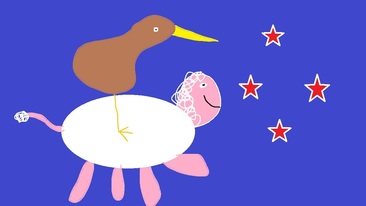 As an Aussie, it pains me to say it. But New Zealand is superior to Australia as a country. Rugby, politics, indigenous relations, same sex marriage, refugees, making trilogies about talking trees and quests for rings... New Zealand is just better than Australia at all of those things. Thank god the Kiwi accent is awful, otherwise Aussies would just have the worst inferiority complex to their tiny neighbour. When people ask me about Australia, they have this idea that Australia is a modern, progressive country. I don't correct them on it. But only because the truth is just embarrassing. Australia is terribly backward about a lot of stuff. And lately people here in Europe are wisening up. They're obsessed with Master Chef Australia (positive reaction) and Border Patrol (negative reaction), but all I can say is thank god they don't get The Block here. They pin me down and ask me how I can defend Australia's terrible policy when it comes to migrants (I can't). They ask me about that loopy redhead that got re-elected to the senate again on a platform of Islamaphobia (I just point to how strong the far right is here in Europe). They ask me why Aboriginal Australia is seen so differently by white Australia when white New Zealand has made such strides in its relationship with the Maoris (this is where I run out of general leftie responses). But when they speak about New Zealand (because, you know, Australia/New Zealand same same) they never have anything negative to say. And they've got a point. New Zealand is the progressive, modern country of the Asia Pacific region. They have their own Silicon Valley. And even though their rugby team decimates Italy on a regular basis, Italians only have awe for the Kiwis. Last year, to try and get a one up on Australia, the New Zealand government decided it was time to change their flag. Their flag, I should remind you, is almost identical to Australia's and I'm sure they were tired of being mistaken for their bigger, more famous sister country. In Australia, if we wanted to change the flag, we'd shell out millions and millions of dollars to a slew of marketing agencies, designers from abroad or the art world's darling from five years ago. But our tiny neighbour is more progressive than that. They simply opened up a new flag design to the people. The results were breathtaking. This wasn't a Biennale year in Venice, but even if it had been, the NZ flag contest would've put the art world in the shade because it was priceless. Designers world wide would've abandoned Illustrator and gone back to Paint, because that's where the future of design lies (in N.Z at least). New Zealanders wanted to come to the flag party. So much so, that over 10,000 entries were received in the open call. The majority of them were technologically savvy and avant garde. For a tiny minute at least, it looked as if New Zealand was going to turn the horrors of 2016 around all on its own. It was going to make the world a better place, and shake up the political order with its new flag. But, because 2016 was born from a butt hole, there was no justice in the end.
Kiwis went to the polls with a much reduced series of choices. Boring, conventional, practical choices. And in the end, after millions of dollars, all that excitement came to nought. Because the Kiwis decided to stick with what they had. The original, Australian imitation flag. 2016 sucks. 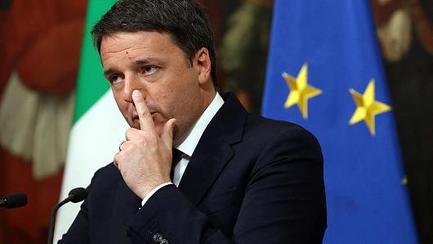 I've been told it's snowing in Hawaii. Equally improbable is the fact that I woke up this morning and found that I correctly predicted the results of Italy's constitutional referendum. That's like the first time this year I've gone to bed knowing what the political result was going to be the next day. You're going to be reading a lot of coverage about the referendum over the coming days. Primarily because Italy's prime minister Matteo Renzi had staked his job on the result. Poor little lamb just resigned. Let me just make a couple of points for you to keep in mind as you read the analysis. When the referendum was announced, the goal was to simplify the parliamentary process. I think it's safe to say that Italy isn't famous for progressive, transparent government. Law makers have a tough time of it here and laws constantly get sent back from the senate to the parliament for rewording and rewriting, making the process infiinitely longer. Because this country is red tape central, Renzi figured the parliament needed more power at the Senate's expense. This would effectively speed up the law making process [but give the PM more say and more power to push through his agenda]. Renzi started his term with a huge, popular mandate. The constitutional reform he floated was approved by parliament, so he was, as always, bullishly confident that the public would approve of it too via the referendum. So confident, that he declared he'd quit if the referendum didn't pass. Problem was that the political climate had changed substantially by the time the vote was taken to the public. In some corners, Renzi was increasingly being seen as a mini Berlusconi: all confidence and huff when Italy was yet to show much in the way of improvement under his governing. The opposition [many parts of whom originally voted in favour of the reforms] changed their tune and began to vocally signal their opposition to reform when they sensed the public's mood. They correctly saw the referendum as being an opportunity to oust Renzi - thanks to his promise to quit. Aside from Renzi's pointless act of personalizing the referendum which ultimately doomed the campaign, the other issue was that Italians didn't have a clear idea what they were voting for or against. The suggested reforms were not clear- they were incredibly complex questions for many people and even friends of mine who voted walked away feeling unsure what their vote meant. But the takeaway was that many felt that in voting for reform, they would be stripping themselves of their power to vote in the electoral process. By stripping the senate of its power, they would effectively be removing part of their voice and giving it to Renzi or whichever party was in government. And don't be fooled. The EU had nothing to do with these elections. It was not considered a vote for or against the European Union, despite what some in the press are saying. This was a vote for or against Renzi, and a vote for or against changes to the parliamentary process, which has revealed how little most Italians know about the political process.  It's World Aids Day today. A day to reflect on how modern life has so thoroughly changed the way many of us interact. How such a cruel and infatiguable disease has been responsible for so much heartbreak and the loss of life. A day to remind us to be ever vigilant and to not take for granted the immense toll four letters have brought with them. I'm catching up on things. I finally got around to watching Behind The Candelabra this week. Dubbed in Italian of course (urgh). I'm told Liberace wasn't really well known in this neck of the woods, but the movie's message went beyond being a simple, enjoyable biopic. Liberace's AIDS related death in the mid 1980s was realistically, if briefly portrayed in the film. But it was enough to bring back memories of what it was like growing up in the eighties in the shadow of HIV/AIDS and the fear and pandemonium it sparked. I don't know what it was like for you growing up where you did, but I have two really clear memories about the AIDS epidemic from back then. Beyond the tragedy of it all, I have really vivid memories about how awful we were in Australia. How the media in particular played such a huge role in a scare campaign that was often cruel and lacking in compassion. The most vivid of my memories was based on an infamous public service announcement that aired regularly. It's referred to as the Grim Reaper ad, and even now, it's still chilling. It was an ad that really represented how little we knew and how much we feared. The breakthroughs that have made HIV more manageable today weren't existent back then. Being school aged I remember people being terrified of bodily contact, of how ideas like using a restroom was suddenly dangerous. Of how the stigma of the disease took shape and took hold. Of how prejudice and witch hunts were the norm in Australia. If anybody embodied the tragedy of the AIDS epidemic for Australians, it was little Eve Van Grafhorst. Born prematurely in 1982, she'd contracted the virus from one of a dozen or so blood transfusions as a newborn. Her condition quickly led to Eve and her family being on the receiving end of all kinds of uninformed prejudice and harrassment in Australia, and to her being expelled from her kindergarten she attended for fear that she would infect the other children. A witch hunt, faithfully covered by the Australian press, ensued and life in Australia became unbearable for the family. The family was welcomed with open arms by the town of Hastings in New Zealand where they were forced to start a new life, where Eve would go on to become the public, human face of the disease. In New Zealand, her presence was a reminder of the compassion of the country's people and of the Australian community's intolerance. Despite her young age, Eve played a vital part in educating the public in Australia and New Zealand about AIDS and AIDS sufferers. There's a lovely commemoration over at Stuff reminding us what Eve taught us and I've included a video below that commemorated her life and death. There have been medical advances and we've managed to shake off some of the stigma attached to HIV and AIDS. But we need to do more, to be constantly vigilant and to ensure that the younger generations rid themselves of the false sense of security that seems to be infiltrating the community again. Get tested. Get informed and do your part in stamping out ignorance.  LET'S face it. 2016 has been a horror year. We should've seen the signs as early as January. January 10 to be precise. On that day, we lost someone incredibly unique: David Bowie. A man who transcended boundaries and whose appeal was inter-generational. Bowie left with the same style and grace he'd displayed for decades, choosing not to make his health battles and problems public. Instead, he left us with Blackstar, his final album, which has remained one of the year's best reviewed works. How fitting, it seemed, that Blackstar - an album in which Bowie looks death squarely in the face - was his final swan song. As if the master had planned the farewell in advance. But accounts are now beginning to surface which suggest Bowie was already planning on yet more material after Blackstar. It's a tantalizing idea. As has become custom, we realised what a remarkable, mercurial talent he was only once he was gone. Blackstar went to number one on its posthumous release. Much of Bowie's back catalogue filled out the world's albums and singles charts as we scrambled to preserve our memories of him and his music. And, his transcendental approach to culture: blurring the lines of music, fashion and art as he did for so long, have stretched his legacy into the art world. Since his departure, the Victoria and Albert museum in London has announced that their Bowie exhibition has become their most ever visited show. Bowie's personal art collection: as progressive and ahead of the times as the man himself - has had collectors in a frenzy. And yet, he'll be remembered for being such a phenomenal pioneer in popular culture. With a voice that was distinctive and incredibly powerful. Get your fill of it over at NME which have some great isolated vocals that attest to how amazing that voice was lest we forget. 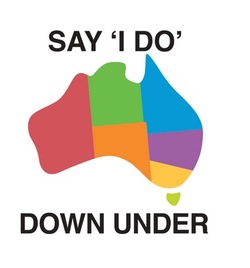 This is of course a blog and therefore, the opinion pieces here are endless. So, in keeping with the last post I thought I might try and let you in on a campaign that I'm loving right now. Firstly, can I just say that I love this image of Australia? Ours is a country that is divided into six states and two territories, of which the ACT (Australian Capital Territory) is one. For those of you who don't know, Canberra is our capital and therefore home to our parliament. It's kind of in the center east of the purple part of the image. Now, I don't want to speak poorly of people from Canberra, but there's something about this map that I just love: there's no ACT on it, and therefore, no representation of our government, even if the ACT itself is a pretty progressive place when it comes to legislation and policy. Australia is a place that a lot of people have distinct ideas about: the place where you kangaroos and koalas charm, where hot surfies and beautiful beaches are a dime a dozen and the place which produced not one, but two Minogues (hi Dannii!!). Kylie, in addition to being a bonafide pop and gay icon, is a national treasure. Many of us have grown up with her, watching her on telly on different soapies in the eighties and then watching her parlay her frizzy blonde perm and her pixie like self into the world of pop music where she has more or less remained for the last three decades. She's had some high profile hits, misses and romances in her time (including Michael Hutchence and my personal fave Andres Velenscoso), but, I think she's outdone herself this time around.  Consider exhibit A: Joshua Sasse, her fiance. Not only are they a super cute couple, but low and behold, Mr. Sasse has turned out to be not just an actor, but an activist to boot. He's launched a campaign called Say I Do, Down Under in an effort to raising awareness of the Australian government's immobility on same sex unions. Like any good viral campaign it's been picking up support from all kinds of high profile figures in the entertainment world, and of course Kylie is among them, recently declaring that she won't marry until Australia's LGBT community can legally do so to. A touch of the Brangelinas about the statement perhaps, but all's good in the name of a good cause. You can support Joshua's initiative through sharing on social networks as Ellen DeGeneris recently did, or by purchasing your own tee with that cute little map of Australia on it from the website. Ding dong! The plebiscite is (all but) dead.
I don't want to shatter your illusions but Australia is much like most other Western nations these days. It's a country marked by bitter divisions and for some time, has been host to a series of parliaments who haven't been able to play well together. Think minority governments who are constantly sparring with one another and tapping into the handful of independents who often allow the government of the day to hold sway. Unlike most every Western nation, Australia has not yet seen fit to offer Same Sex Marriage to its citizens. This is despite what polls and the majority of the Australian public know: Australians are overwhelmingly in favour of Same Sex Marriage, and, are tired of the political machine in place aimed at stopping it. During the Bush era, one of Australia's longest serving prime ministers, John Howard, followed the USA's lead back in 2004 and changed the country's Marriage Act so that it explicitly defined marriage as a union between 'a man' and 'a woman'. This was designed to preempt what politicians saw was coming around the corner: the general public's approval of same sex unions. Once Howard's government was finally voted out in December 2007, after an eleven year term, Australia swung back towards the left. But public opinion had not quite reached the point it has today and in two divisive terms of government (which included the ousting of a Prime Minister), the left failed to make any progress on the grounds of same sex unions. After the public grew tired of the left's factional fighting, one of the most divisive mainstream political figures of the modern era emerged: Prime Minister Tony Abbott. Catholic background and ties, shrewd and ultra conservative, he pushed Australia back to the right and, among his controversial policies (including those of towing back the boats of migrants arriving from Indonesian waters) was a binding policy in which members of his Liberal party were silenced on the issue of same sex unions. Under his leadership, the Liberals could not have a free vote on the issue which by his arrival in parliament in 2013 had become a mainstream issue. To appease the other conservatives in his party (and its coalition partner the National Party), he devised the idea of a non binding Plebiscite, which would buy the government time and allow for the further postponement of debates and any resolution of the matter. It was a policy that outraged many in the public, and though Abbott was to fall on his sword in a leadership challenge, it's a policy that his replacement, Malcolm Turnbull has chosen to maintain. Today, the opposition effectively torpedoed the plebiscite citing studies and opinions which pointed to it being a costly, divisive, and ultimately non binding course of action. Public debate in recent months has focused on the Irish example where bitter campaigns financed by the church and other conservative interests led to all kinds of hate speech filling the public arena and spurring threats of violence and discrimination among the LGBT community. The bill will still go to the senate where it is likely to fail, but the question remains, what will the Current Wizard of Oz do? Will he continue to hide behind the safety jacket of Tony Abbott's policy, shielding him from the wrath of the conservatives within his party, or, will he, as a self professed supporter of Same Sex Marriage actually grow a pair and stand up to his party faction, allowing all of its members a free vote on the issue and an end to what feels like has been an endless debate? The wisest of all of Australia's political commentators has her thoughts here. Sad that it has come to this, but gosh, they still have it, don't they?
Of course, some more Rosario would've been great, but who am I to complain with their brilliant chemistry and the writing that made Will and Grace so great for so long? It was like eight seasons crystallized into ten minutes with a lot of venting and great gags. Meanwhile, did you watch the debate? I did this morning, having gone to bed with that uneasy feeling about what the box of kittens would bring with it. Watching it was like watching something on the Discovery channel. Where the big, bulky species was constantly being pushed back into its cage by the smaller but smarter opponent. That said, is it just me, or do you increasingly get the feeling that Trump's boiling anger acts like some kind of catharsis for the wider population? Like he says everything people from anywhere have wanted to say to a politician - especially one like Hillary - but never get the chance to because they don't want to sound like a rambling lunatic, or because reason, intellect [and facts] stops them? Watching him stab his words out is like listening to half a country getting everything off its chest in a group therapy session, amplified as it is through all that fake tan and that comb over. The commentators and media have already decided it was a win to Hillary, but the response from, well, I don't know, a third of the world [hello China, Russia, Iran, Japan, North Korea and Saudi Arabia and congratulations on your special mentions] is going to be just as fun [and disturbing] to watch. If that debate doesn't justifiably make their blood boil in the process. Please America, make it end. You know when a news story just leaves you feeling, well, awkward?
A new candidate for Awkward! shuffled forward this week out of a court room in Sicily. From the minute you hear Sicily and 'courtroom' you know you gotta perk those ears up because you just know it's going to be juicy. Well, I think it's more juicy as in moist. See? Got you feeling just the right kind of awkward now. Let's proceed. Story goes a little something like this. A 69(!) year old man in the greater Catania area apparently just felt the need to throw a bit of caution to the wind and to, erm, give himself a little bit of pleasure in front of a group of teenage girls who are students at the university. He was initially arrested for indecent exposure, but just this week had the charge overturned as the judge has ruled that it (i.e. the act of masturbating in public) is not a criminal offence. You see, in Italy, law is basically divided into two camps: criminal and civil. He'll be fined a few thousand euro for taking the liberty onto himself in front of others, but no criminal act will be entered onto his record. Which means, due to a change in the criminal code, masturbating in public is now technically not a penal crime. So for you perves who want to get it on by yourselves outdoors and in front of Italy's greatest landmarks, the judge has basically paved the way for you to do it. To avoid a fine, you might want to content yourself with just being out in the open air though, and not bother trying to get yourself an audience as it sounds like the law's interpretation is less about exhibitionism and more about the right to, erm, derive satisfaction in the open air. Original report in Italian here, translated in English here. Just for something different, I'm having another face palm day here in Italy. I know right? Life is full of surprises. I don't know about you but the countries that I have spent the most amount of time living in all have the same problem: a population that is getting older. Some deal with it by trying to entice young, upwardly professionals over, but, immigration being the dirty word that it is now makes that a touchy subject. Thank God for the Italian government. They've brought ingenuity to the problem. You see, Italy is chock full of oldies. Oldies that the government tries to throw a pension at and ignore. You see, the mentality is largely, 'here, take your cash but don't come a knocking for any support: you want home care? You can pay for it with that wad you just risked your life withdrawing or, be a good Italian parent and ensure your own children look after you." Don't worry. The government's ignorance towards its aged citizens is matched only by the contempt it has for its youth. Youth unemployment is currently at 39.2%. No, it's not a typo. 39.2% - with no real hope of improving at least in the forseeable future. [The national figure is 11.4%.] Those that are in work are most likely to be on temporary contracts, or worse, as I can attest, working as independent contractors who, regardless of how little they might be earning, have to pay thousands of euros worth of retirement contributions out of their own pocket in addition to their taxes even if this equates to more than 50% of their salary. Italian families also have it tough: there's very little in the way of public childcare here: it's mostly a private gig and an out of pocket scenario meaning those grandparents better put aside some cash to make sure there's always a Kinder surprise in the house for those pesky grandchildren. To address the problem of the growing grey army, the Italian government, in its infinite wisdom, has declared September 22 to be Fertility Day. Basically a stay in and procreate day. This week, it launched a particularly gruesome online campaign right out of the 1950s. The above images respectively translate as: "Beauty has no age but fertility does" and "Fertility is a public asset". Leaving aside the economic absurdity of straight out encouraging people to have children in a country whose economy is on the brink of collapse [in 2013 more than 90,000 young Italians left Italy in the search for work elsewhere], the campaign has also touched off debate about people - especially women's - right to choose what they want to do with their bodies and the life choices they make. The tone of the government's approach is shockingly old school - basically labeling women as incubators for the public. Additionally, the emphasis on fertility has been perceived as a tactless affront to those with fertility issues, or, construed as a campaign to make people feel guilty about having children later [if at all]. This in a country where most women need to go abroad in order to have fertility treatment if they're having trouble conceiving.  "Hurry up! Don't wait for the stork." "Hurry up! Don't wait for the stork." Italians were already weary enough of their government. Growing numbers are rejecting the established parties in favour of the new, populist reactionary groups like Cinque stelle. This kind of propaganda is seen for what it is: an out of touch campaign based on the Italian guilt complex that many grew up with but no longer tolerate. That it made it through so many levels of government, that so many people clearly worked on it to get it out into the public is incredulous. Did nobody stop to think for a moment the outcry this was going to cause? Say what you want about Italians, but they're not afraid to share their opinion on things, especially if the topic is divisive. The huge debate that these images and the ideas driving them has created led to reports of the #fertilityday website being shut down last night, just hours after it went live. The debate though will rage over the coming weeks but the damage has already been done. |
Dave
|
|
|
Dave Di Vito is a writer, teacher and former curator.He's also the author of the Vinyl Tiger series and Replace The Sky.
For information about upcoming writing projects subscribe to the mailing list. Dave hates SPAM so he won't trouble you with any of his own. He promises. |
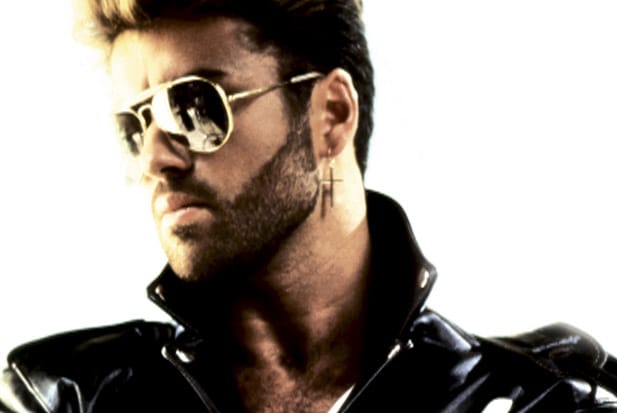

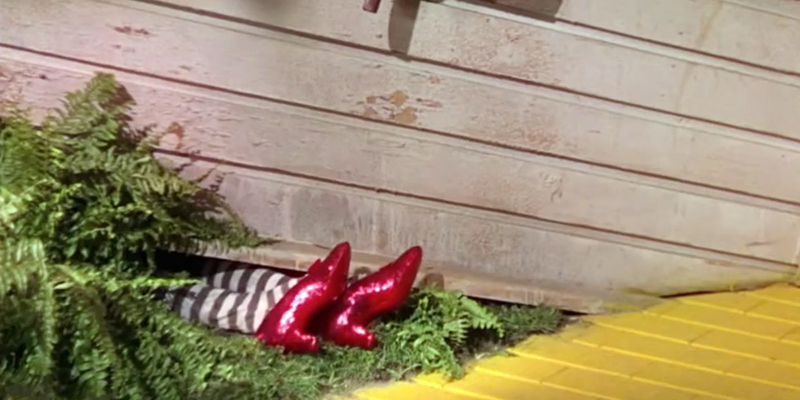

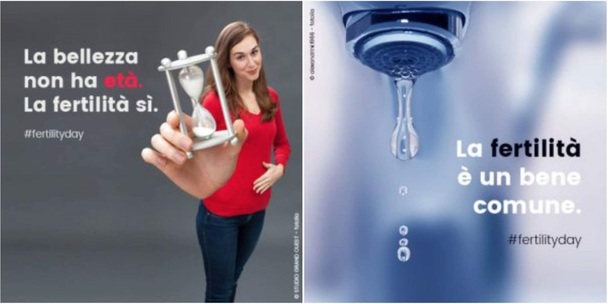
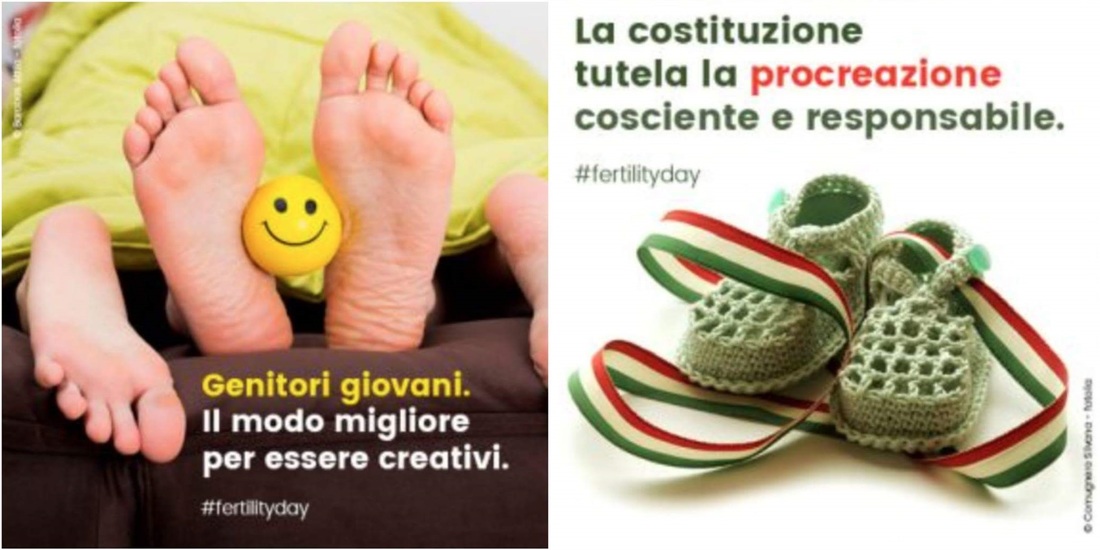
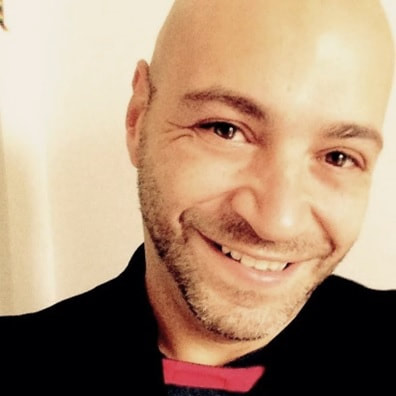
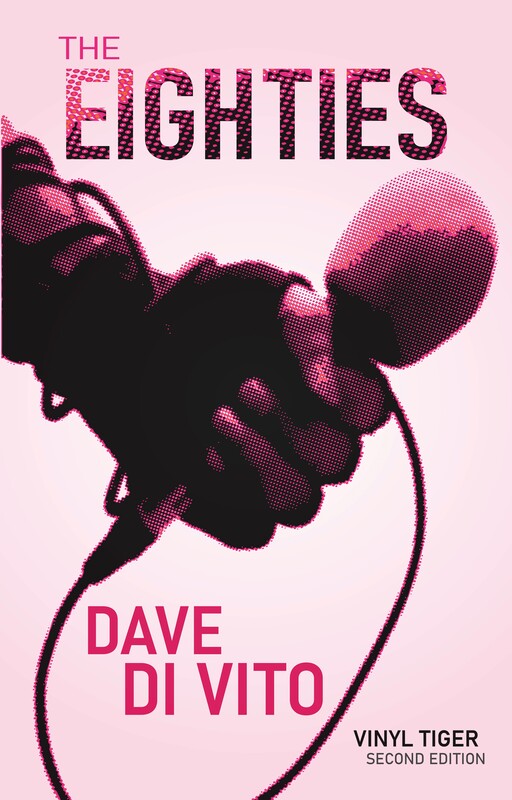
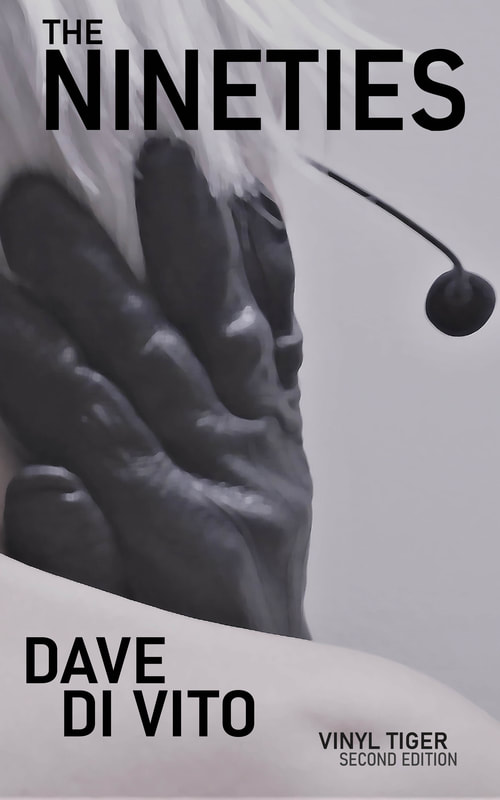
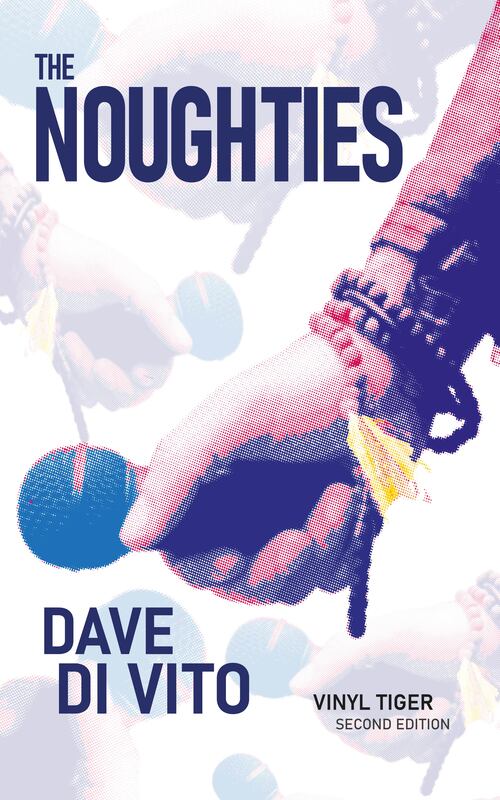
 RSS Feed
RSS Feed